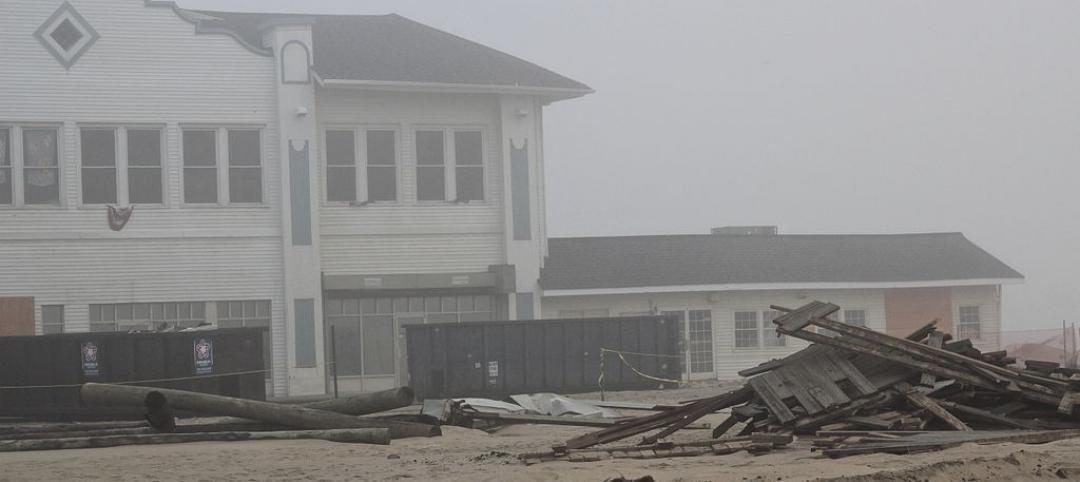The Biden Administration recently launched the Clean Air in Buildings Challenge that calls on all building owners and operators, schools, colleges and universities, and organizations to adopt strategies to improve indoor air quality in their buildings and reduce the spread of COVID-19.
In conjunction with that announcement, the Environmental Protection Agency (EPA) published a best practices guide for improving indoor air quality and reducing the risk of spreading dangerous airborne particles. The guide, developed in collaboration with the Department of Energy, Centers for Disease Control and Prevention, and other federal agencies, contains a set of recommendations organized into four groups:
- Create a clean indoor air action plan that assesses indoor air quality, plans for upgrades and improvements, and includes HVAC inspections and maintenance.
- Optimize fresh air ventilation by bringing in and circulating clean outdoor air indoors.
- Enhance air filtration and cleaning using the central HVAC system and in-room air cleaning devices.
- Engage the building community by communicating with building occupants to increase awareness, commitment, and participation.
Under these recommendation areas, EPA’s best practices guide lays out actions building owners and operators can implement. The guide offer a menu of improvements and includes quick steps that organizations can take right away as well as resources to help plan for longer-term investments and improvements.
Related Stories
| Jul 11, 2014
California Supreme Court rules that architects can be sued by condo association
The decision held that even though, on most projects, the developer has the final say on design choices, the architect can’t escape liability to the end user.
| Jul 10, 2014
Latest construction accident fatality statistics reverse trend of declining deaths
The latest data on construction site fatalities for 2012 shows a rise in the death rate to 9.9 per 100,000 workers after 2011 had reached a recent low of 9.1 per 100,000, according to an analysis of data by the AFL-CIO.
| Jul 10, 2014
EPA seeking public comments on site contamination rules
The Environmental Protection Agency (EPA) is accepting public comment on its proposal to eliminate the dual standard for compliance with rules pertaining to testing of land that may have been contaminated by chemical pollution.
| Jul 1, 2014
Dept. of Labor reaches settlement for $5 million in back wages for workers on federally assisted project
The U.S. Department of Labor and MDG Design & Construction LLC have reached a settlement over wage violations at the federally-assisted 26-story Grand Street Guild rehab project in New York City’s Lower East Side.
| Jul 1, 2014
FEMA grant helps fund school theater that will double as tornado safe room
Scott City School District in Missouri recently broke ground on an 8,990-sf performing arts theater that will also function as a tornado safe room.
| Jun 30, 2014
Research finds continued growth of design-build throughout United States
New research findings indicate that for the first time more than half of projects above $10 million are being completed through design-build project delivery.
| Jun 26, 2014
Walkable areas lead to higher rents for developers
New research from a George Washington University research group and LOCUS, a coalition of real estate investors that's part of Smart Growth America,says that offices in “Walkable Urban Places (WalkUPs)” bring developers 74% more rent per square foot.
| Jun 25, 2014
AIA Foundation launches Regional Resilient Design Studio
The Studio is the first to be launched as part of the AIA Foundation’s National Resilience Program, which plans to open a total of five Regional Resilience Design Studios nationwide in collaboration with Architecture for Humanity, and Public Architecture.
| Jun 18, 2014
Battle over low-cost, Chinese-made solar equipment could stunt solar power growth
The U.S. Department of Commerce tentatively agreed to assess tariffs of up to 35% on solar equipment, a move that could slow the rapid growth of the domestic solar power industry.
| Jun 18, 2014
Pittsboro, N.C., approves massive new development plan
The Pittsboro, N.C., Board of Commissioners approved the master plan for Chatham Park, a massive residential and commercial project that could bring 60,000 people to Pittsboro over several decades.















